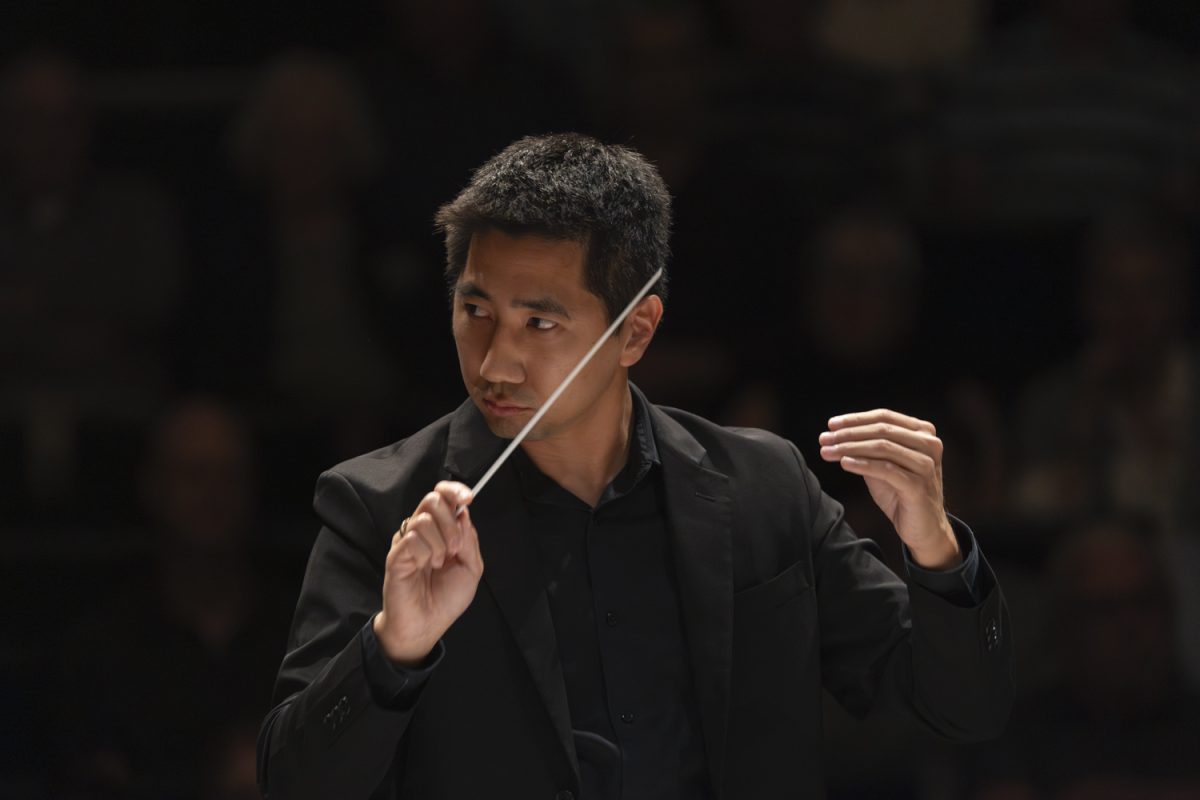Kenny Lee is the University of Iowa’s newest Symphony Orchestra conductor, responsible for leading the UI Orchestra in their first concert of the school year. A skilled cellist, Lee looks forward to his new position as a conductor for UI and what he can achieve.
This symphony concert is the first of four this semester, and Lee has focused on crafting a program with a wide range of pieces that challenge each orchestral section and take the audience on a musical rollercoaster. The concert is at the Voxman Building from 7:30 – 9:30 p.m.
This interview has been edited for length and clarity.
The Daily Iowan: How do you select compositions for the orchestra?
Kenny Lee: Well, selecting music for any program is a long process, at least for me, because I’m always trying to find what’s most valuable for the students. The impetus of this program’s piece is Tchaikovsky’s fifth symphony. It’s something that everybody knows and that, I think, everybody should know how to play because it’s just a staple in our repertoire. It’s also just incredible music. Tchaikovsky is known for his melodies, which are quite catchy and very accessible.
I try to find at least one piece on each program that features a living composer. I’m a huge advocate for new composers — especially young composers. [I chose] a piece by Japanese-American composer Andy Akiho, and it’s called “Translucent.” It’s a really fascinating piece because it can’t be more different from something like Tchaikovsky. There’s a lot of amazing, rhythmic groove and energy, particularly from the percussion section. One of the players actually has to play a propane tank, which I think is quite fascinating. That’s quite a process because, obviously, that’s not a traditional percussion instrument, so you have to find a tank and all that stuff, but we’re making it work. It has a sort of rock-ish feel, but at the same time, there are different and imaginative colors coming from the other parts of the orchestra.
How do you make each concert feel distinct?
Every concert is an opportunity. I try to use that feeling of opportunity to create something amazing with everyone. No concert is less significant than another one. I’ll rotate students so that a lot of students sit in different parts of the orchestra. I rotate leaders so that everyone has an opportunity to do something new and fascinating for each cycle. There’s a lot of hype about this concert, though, because I’m new, and they haven’t had a steady conductor in a long time, so it’s really exciting that this is the start of a long-term journey, and I’m really excited to work with this group down the line and see how everything will sound in the future.
Are there any fun traditions surrounding the orchestra concerts?
Many students ask me about my pre-concert ritual or what I do if I’m nervous before a program. My answer to that is I don’t have a ritual. I think of a concert day as no different from any regular day. We just happen to be wearing nice clothes and have the opportunity to share something with the audience. I just try not to put that kind of pressure on myself. It works for me, but I’m not sure if it works for others.
Are there challenges working with such a large group of musicians?
What’s challenging but also really exciting about an orchestra is there are so many different types of people and levels. We have very experienced upper-level students with years of professional work, and also we have some new freshmen entering a brand-new orchestra experience.
What do you hope people take away from this concert?
Joy and love for music-making. That might sound cheesy, but I feel like everybody works really hard to practice their part, and I do my job to create the scores. Everybody has a part in creating something special together, and I think this is just such a wonderful opportunity for us to share something with the audience.



